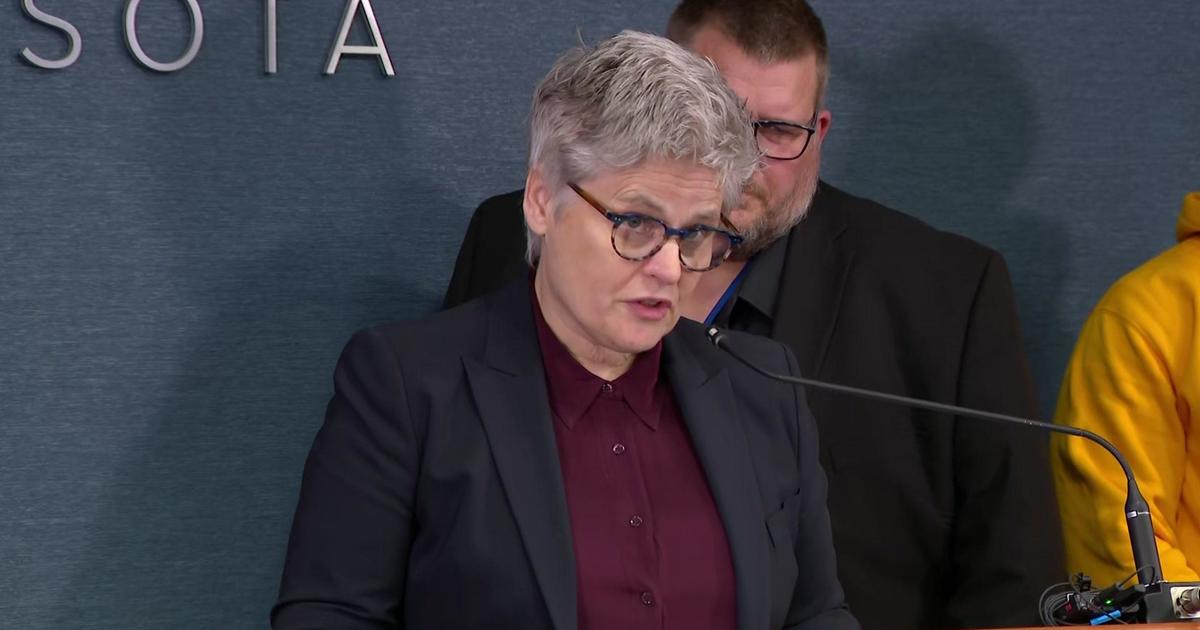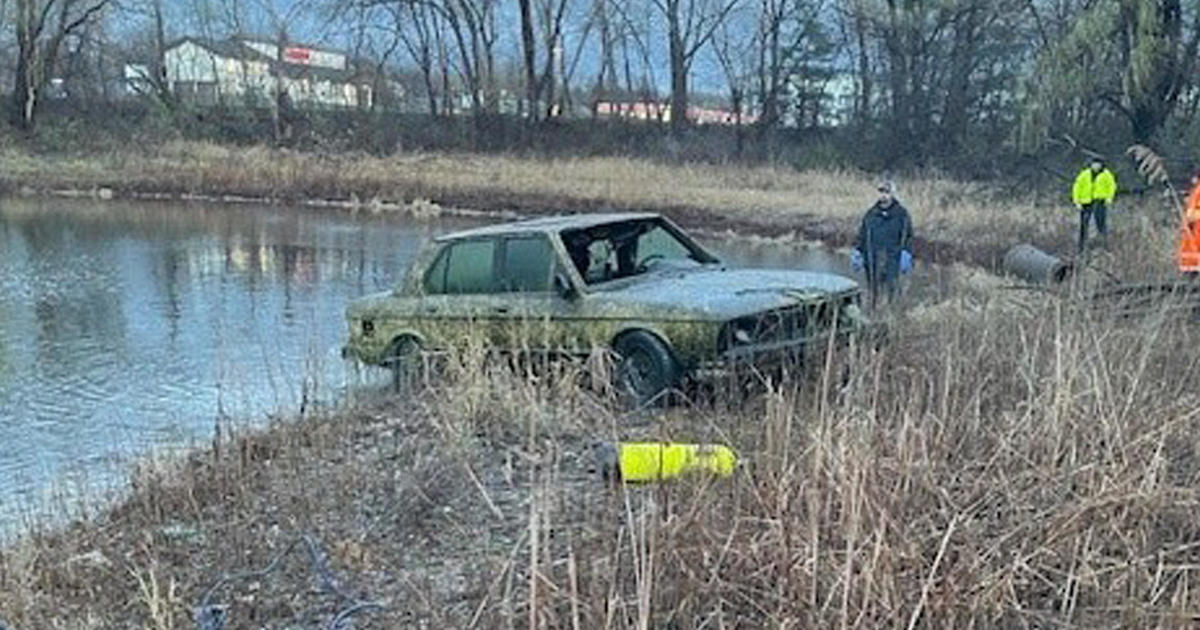About 200 DAPL Protesters Face Off With Law Enforcement
BISMARCK, N.D. (AP) — The Latest on protests and other developments surrounding the construction of the Dakota Access oil pipeline in North Dakota (all times local):
1:30 p.m.
About 200 people protesting the Dakota Access pipeline are facing off with law enforcement near the mouth of the Cannonball River.
Officials say protesters were trying on Wednesday to get onto private property owned by the pipeline developer.
About 30 people are in waist-deep water confronting law enforcement officers, while others are on the banks.
Medics were treating some protesters for hypothermia and others who were hit with pepper spray.
Morton County sheriff's spokeswoman Donnell Hushka says some protesters tried to build a wooden pedestrian bridge across Cantapeta Creek, which runs near the private property. The permanent bridge at the site has been shut down since it was blocked last week by burned vehicles.
Huskha says officers used a boat to pull apart the makeshift bridge.
___
1:10 p.m.
Authorities say they're in a new standoff with protesters of the Dakota Access pipeline in North Dakota.
Officials say protesters were trying on Wednesday to get onto private property owned by the pipeline developer. The same land was cleared of a protest encampment last week, with more than 140 people arrested in the process.
Morton County sheriff's spokeswoman Donnell Hushka says some protesters tried to build a wooden pedestrian bridge across Cantapeta Creek, which runs near the private property. The permanent bridge at the site has been shut down since it was blocked last week by burned vehicles.
Huskha says officers used a boat to pull apart the makeshift bridge. She says protesters are crossing the river by swimming and boats. She says they are being warned that people who enter private property or property owned by the Army Corps of Engineers will be arrested.
___
12:50 p.m.
North Dakota regulators are issuing a formal complaint that could result in stiff fines against the company building the Dakota Access oil pipeline for possibly mishandling the reporting of American Indian artifacts that were found along the route.
The state's Public Service Commission held a hearing on the issue Wednesday. Chairwoman Julie Fedorchak (fuh-DOHR'-chehk) said Energy Transfer Partners could face up to $200,000 in fines, though she said such a high amount is unlikely.
The Texas-based company will have an opportunity for a hearing. A company spokeswoman didn't immediately respond to a request for comment from The Associated Press.
Documents show that artifacts found last month weren't reported to state regulators for 10 days. Fedorchak and the state's chief archaeologist say the site was properly handled, with Energy Transfer Partners moving the pipeline route to avoid the stone cairns and other artifacts.
Meanwhile, the U.S. Army Corps of Engineers has asked local officials to remove a handmade pedestrian bridge on a North Dakota highway near the main protest encampment. A permanent bridge was damaged during a confrontation with pipeline protesters, and protesters were assembling a temporary bridge.
___
11:10 a.m.
A South Dakota tribe is ending a public safety agreement with state authorities over the Highway Patrols' presence at the Dakota Access pipeline protests in North Dakota.
In a recent letter to the South Dakota governor, Crow Creek Sioux Tribe Chairman Brandon Sazue says the state has chosen to stand against its citizens in the name of big oil.
The tribal council voted Monday to rescind the mutual aid agreement with the Highway Patrol for coordinating law enforcement activities between the tribe and the patrol. Sazue says the tribe is also nullifying a state-tribal tax agreement.
The Highway Patrol sent assistance under a mutual aid compact at North Dakota's request. The South Dakota Department of Public Safety declined to disclose the number of troopers provided, but says they returned Sunday.
___
10 a.m.
Documents show that American Indian artifacts found in North Dakota along the route of the Dakota Access oil pipeline last month weren't reported to state regulators for 10 days.
Public Service Commissioner Julie Fedorchak says she's disappointed regulators weren't notified earlier. The matter was to be discussed during a commission meeting Wednesday.
North Dakota Chief Archaeologist Paul Picha says he was notified of the discovery in a timely manner but didn't report it to the commission because he thought the pipeline company would. He says the site was properly handled.
In an Oct. 27 letter, Texas-based Energy Transfer Partners detailed the finding of stone cairns and other artifacts. Consultants for the pipeline company determined there was "a low likelihood" for buried artifacts but recommended avoiding the site.
___
7 a.m.
President Barack Obama says the U.S. Army Corps of Engineers is examining whether the Dakota Access oil pipeline can be rerouted in southern North Dakota to alleviate the concerns of American Indians.
Obama tells the online news outlet NowThis that his administration is monitoring the situation closely but will "let it play out for several more weeks."
The Standing Rock Sioux tribe worries that the $3.8 billion pipeline from North Dakota to Illinois will threaten its drinking water and destroy sacred sites. Protests that have included clashes with police have gone on for several months in North Dakota.
Obama calls it "a challenging situation." He says there's an obligation for protesters to be peaceful and for authorities to show restraint.
The 1,200-mile pipeline is largely complete outside of North Dakota.
___
1 a.m.
North Dakota leaders are criticizing the federal government for not helping pay the policing bill for protests at the Dakota Access pipeline
The state agreed Tuesday to borrow an additional $4 million to cover the escalating law enforcement costs, bringing the total line of credit to $10 million.
Gov. Jack Dalrymple says officials have asked for contributions from the federal government, the pipeline company, an American Indian tribe, "and any entity we can think of."
So far, North Dakota and the local governments it backs have shouldered most of the law enforcement expenses — even paying for officers from other states that have assisted North Dakota during the protests.
(© Copyright 2016 The Associated Press. All Rights Reserved. This material may not be published, broadcast, rewritten or redistributed.)



